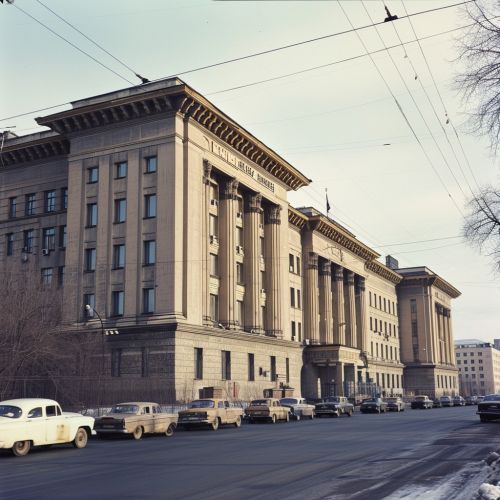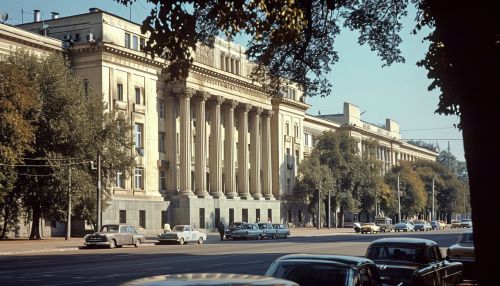Legal system of the Soviet Union
Historical Background
The Soviet Union's legal system was a complex and unique structure that was heavily influenced by the political ideology of the state. The legal system was based on the principles of Marxism-Leninism, which viewed law as a tool for social change and the protection of the socialist state. The Soviet legal system was characterized by its focus on the collective, rather than individual rights, and the dominance of the Communist Party in all aspects of legal decision-making.


Legal Theory
The legal theory of the Soviet Union was rooted in the Marxist-Leninist ideology, which viewed law as a superstructure of the economic base. According to this theory, law was a tool used by the ruling class to maintain their power and control over the working class. In the Soviet Union, the law was used to protect the socialist state and its goals, rather than individual rights or liberties. This led to a legal system that was heavily influenced by political considerations and the directives of the Communist Party.
Legal Institutions
The legal institutions of the Soviet Union were designed to uphold the principles of socialism and the power of the Communist Party. The highest legal authority in the Soviet Union was the Supreme Soviet, which was responsible for enacting laws and overseeing the legal system. The Supreme Soviet was elected by the people, but in practice, it was controlled by the Communist Party. Other important legal institutions included the Ministry of Justice, the Procurator General's Office, and the Supreme Court.
Legal Process
The legal process in the Soviet Union was characterized by its emphasis on the collective over the individual. The legal system was designed to protect the socialist state and its goals, rather than individual rights or liberties. This was reflected in the legal process, which was heavily influenced by political considerations and the directives of the Communist Party. The legal process was often criticized for its lack of due process and the frequent use of political trials.
Criminal Law
The Criminal Code of the Soviet Union was the main source of criminal law in the country. The Code was based on the principles of Marxism-Leninism and was designed to protect the socialist state and its goals. The Criminal Code included a wide range of offenses, from economic crimes to political offenses. The punishment for these offenses was often severe, reflecting the state's emphasis on social order and discipline.
Civil Law
The Civil Code of the Soviet Union was the main source of civil law in the country. The Civil Code covered a wide range of issues, from property rights to family law. The Civil Code reflected the socialist principles of the state, with a strong emphasis on collective rights and responsibilities.
Legal Profession
The legal profession in the Soviet Union was a state-controlled institution. Lawyers were considered to be state officials and were expected to uphold the principles of socialism and the directives of the Communist Party. The legal profession was heavily regulated, with strict requirements for education and training. Despite these restrictions, the legal profession played a crucial role in the Soviet legal system, providing legal advice and representation to individuals and organizations.
Legacy
The legal system of the Soviet Union left a significant legacy, influencing the legal systems of many post-Soviet states. Despite its flaws, the Soviet legal system was a unique experiment in socialist law, providing valuable insights into the relationship between law and ideology.
